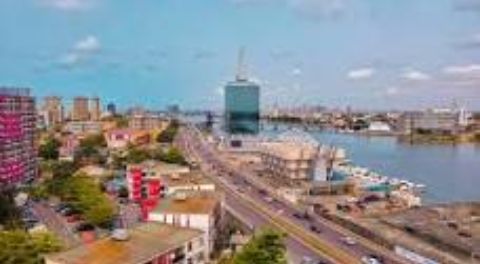Nigeria, a country with vast natural resources, has been experiencing a prolonged economic crisis for a number of years. Despite being Africa’s largest economy and having abundant resources such as oil, gas, and mineral reserves, Nigeria has struggled to translate these resources into economic growth and development. However, there are ways in which the country can be free from this crisis and regain its economic stability.
Firstly, Nigeria needs to diversify its economy. The country has been heavily dependent on oil exports, which account for over 90% of its revenue. This over-reliance on oil has made the economy vulnerable to fluctuations in global oil prices. In recent years, Nigeria has faced significant challenges in the oil industry, including reduced demand and low oil prices, which have had a severe impact on the country’s economy. By diversifying its economy and investing in other sectors such as agriculture, technology, and manufacturing, Nigeria can reduce its reliance on oil and create new sources of revenue. This will not only create more stability in the economy but also provide more opportunities for its citizens to prosper.
Secondly, the government needs to tackle corruption. Corruption is a major hindrance to economic growth and development in Nigeria. It undermines the rule of law, erodes public trust in government, and discourages foreign direct investment. Corruption has been identified as a significant problem in Nigeria, with the country ranking low on the Corruption Perception Index. The government must take a strong stance against corruption and implement effective measures to prevent it. By doing so, it will increase transparency and accountability in governance, which is essential for economic growth and development.
Thirdly, Nigeria needs to invest in infrastructure. Poor infrastructure has been a major impediment to economic growth in Nigeria. Roads, bridges, airports, and ports are in dire need of renovation and modernization. The government must prioritize infrastructure development to attract foreign investment, create jobs, and improve the standard of living for its citizens. Inadequate infrastructure has been a significant barrier to the growth of businesses and industry, and it has also contributed to the high cost of doing business in Nigeria.
Lastly, Nigeria must promote entrepreneurship and innovation. The country has a young and vibrant population with great potential. By supporting entrepreneurs and innovators, Nigeria can create new industries, generate employment opportunities, and drive economic growth. Entrepreneurship and innovation can create new products and services, improve existing ones, and introduce new methods of production. This will not only create jobs but also help Nigeria to be more competitive in the global market.
In conclusion, Nigeria can overcome its economic crisis by diversifying its economy, tackling corruption, investing in infrastructure, and promoting entrepreneurship and innovation. These steps will require significant efforts from the government and private sector, but with the right policies and actions, Nigeria can become a prosperous and thriving nation.
By reducing its dependence on oil, addressing corruption, improving infrastructure, and supporting entrepreneurship and innovation, Nigeria can unlock its vast potential and achieve sustainable economic growth and development, Entrepreneurng.com.











